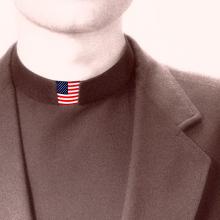politicking
A commission of religious leaders has called for clarity in churches’ ability to endorse candidates and issues from the pulpit without fear of losing their tax-exempt status.
In a report sent Wednesday to Sen. Charles Grassley, an Iowa Republican who has spent years investigating the finances of high-profile televangelists, the commission called the regulation of speech of religious organizations “disturbing and chilling.”
“The IRS guidelines are very vague, so ministers and nonprofit leaders are afraid of the [appropriate] line,” said Michael Batts, the independent commission’s chairman. “We think it can be fixed without creating a monster of unintended consequences.”
The Commission on Accountability and Policy for Religious Organizations grew out of Grassley’s probe of ministry finances and makes recommendations for greater transparency and reform. It is overseen by the Evangelical Council for Financial Accountability, which was founded in 1979 as a watchdog on ethical and financial wrongdoing.
In Wednesday’s report, the commission recommended that members of the clergy should be able to say “whatever they believe is appropriate” from the pulpit without fear of IRS reprisal. Since 1954, IRS regulations allow clergy to speak out on issues but they must refrain from endorsing specific candidates.
A First Amendment watchdog group is suing the Internal Revenue Service for failing to challenge the tax-exempt status of churches whose pastors engage in partisan politicking from the pulpit.
The Freedom From Religion Foundation, which advocates total separation of church and state, filed the lawsuit Wednesday in U.S. District Court in Western Wisconsin, where the 19,000-member organization is based.
The lawsuit claims that as many as 1,500 pastors engaged in “Pulpit Freedom Sunday” on Sunday, Oct. 7, when pastors endorsed one or more candidates, which is a violation of IRS rules for non-profit organizations.
IRS rules state that organizations classified as 501(c)(3) non-profits — a tax-exempt status most churches and other religious institutions claim — cannot participate or intervene in “any political campaign on behalf of (or in opposition to) any political candidate.”
During the 2004 presidential election season, Sojourners put out a bumper sticker with these words: “God Is Not a Republican, or a Democrat.” The number of orders was overwhelming and we kept running out. The simple message struck a chord among many Christians who were tired of the assumptions and claims by the Religious Right that God was indeed a Republican, or at least voted a straight-party ticket for the GOP. They also absurdly implied — and sometimes explicitly stated — that faithful Christians couldn’t support Democratic candidates. We said that voting was always an imperfect choice in a fallen world, based on prudential judgments about how to best vote our values, that people of faith would always vote in different ways — and that was a good thing for a democracy and the common good.
Our efforts appeared to inject some common sense into our nation’s political discourse, but given recent electoral statements and newspaper ads from some conservative Christian leaders, it appears the message bears repeating — God is still not a Republican or Democrat.

